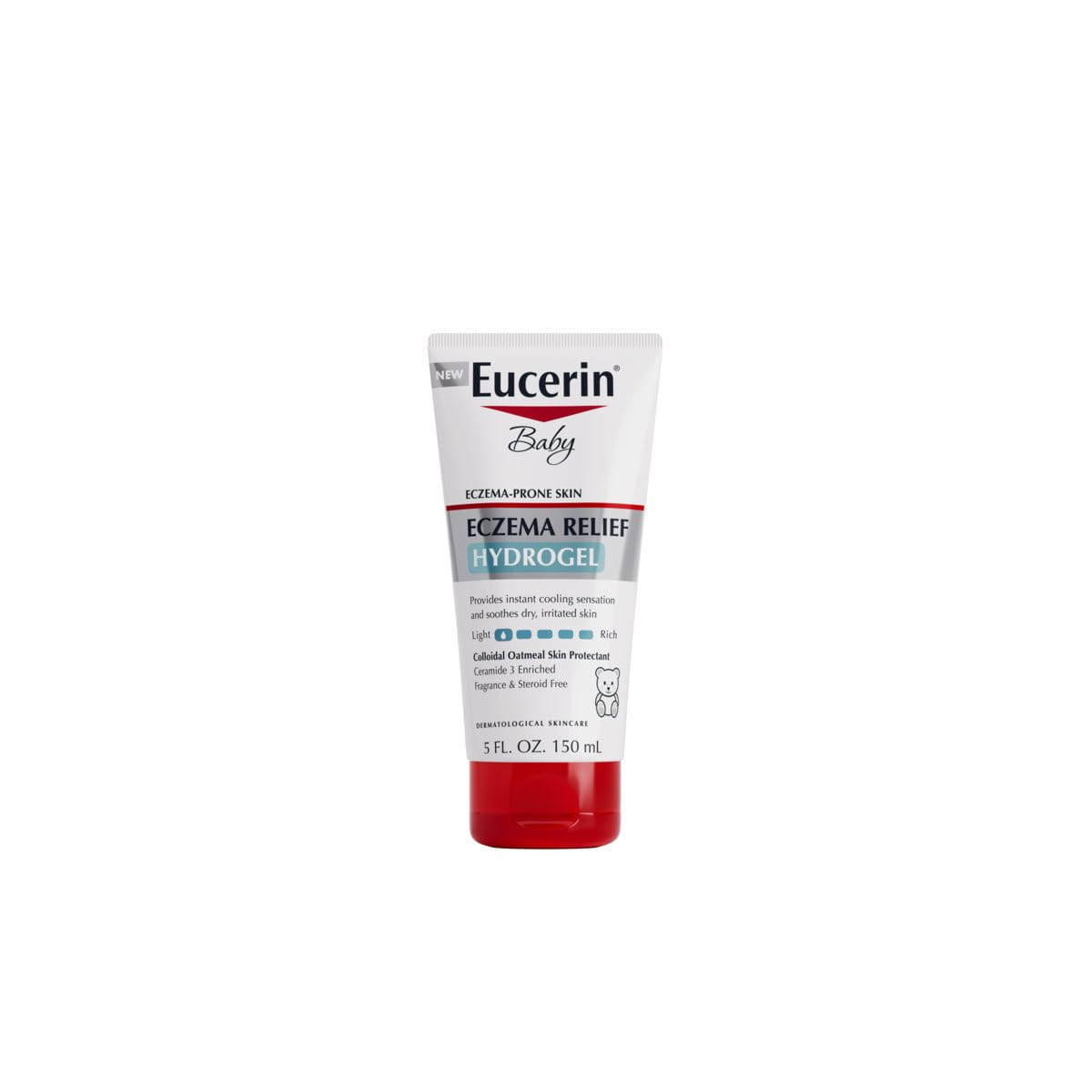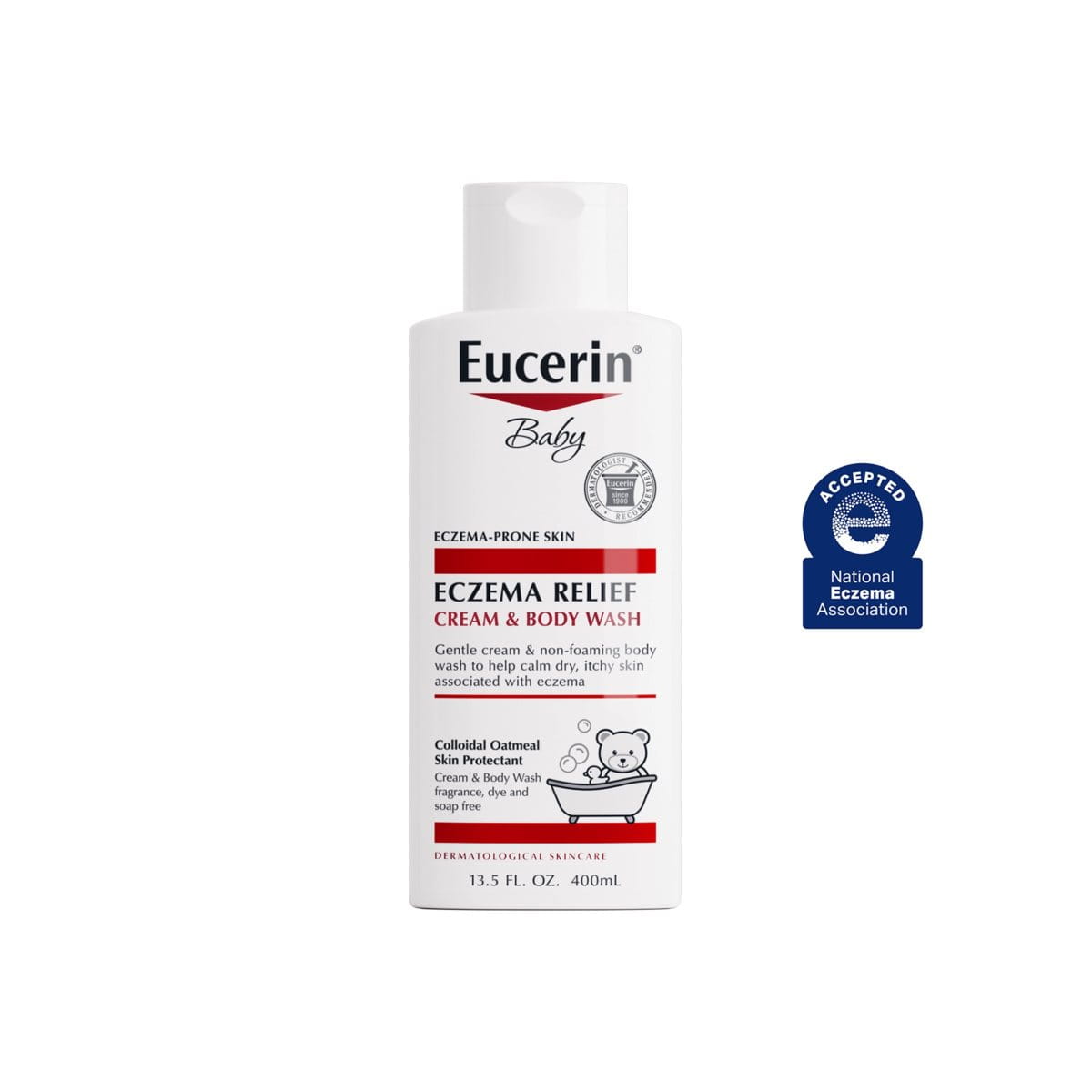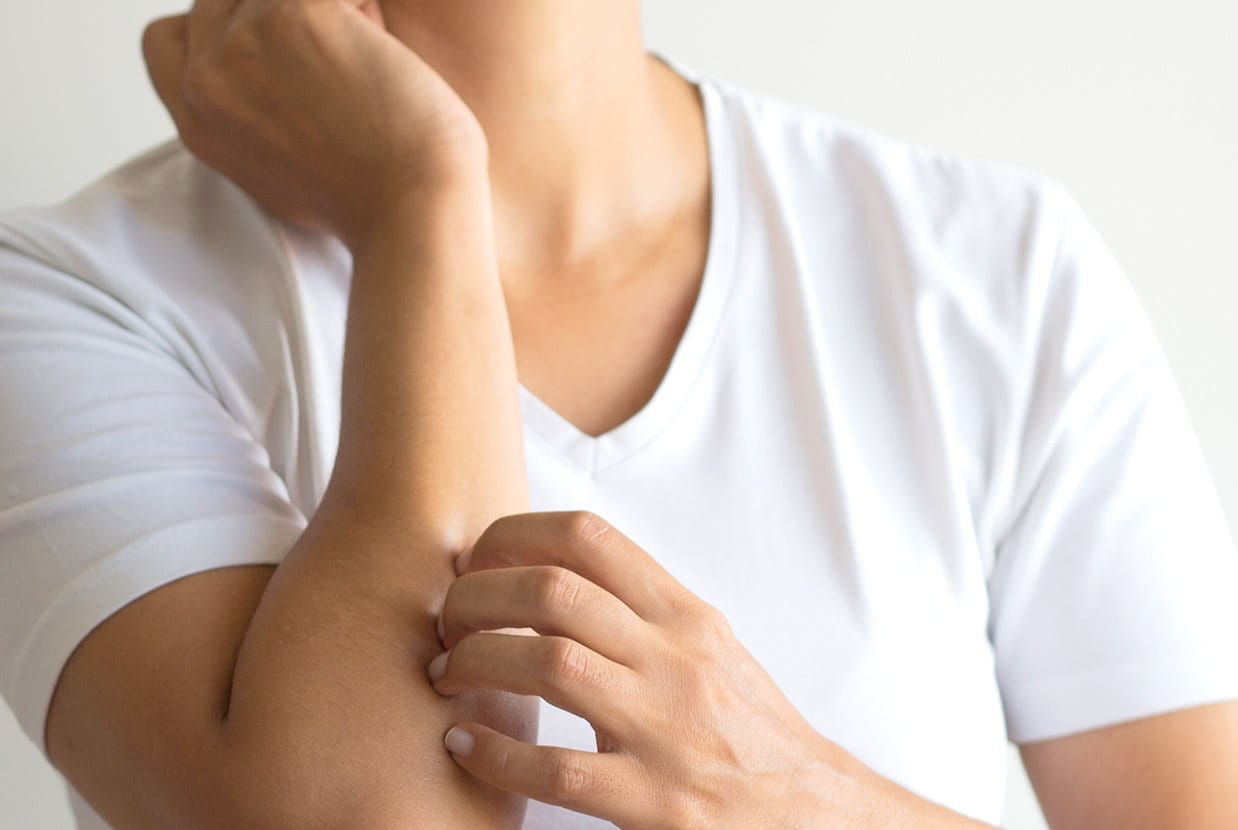About Eczema
Eczema is the term for a group of medical conditions that cause the skin to become irritated and inflamed. Atopic dermatitis, a type of eczema, is known as “the itch that rashes.” It usually appears on the face, hands, and limbs, and is accompanied by an intense itch. Atopic dermatitis is the most common type of eczema, it affects approximately 10% of people in the U.S. Many people outgrow the condition during childhood, although some suffer with it throughout life.
How it Effects the Skin
Atopic dermatitis affects the skin’s barrier function—its ability to keep moisture in and irritants out. It also disturbs the formation of natural skin oils and reduces sweat secretion. As a result, skin loses moisture and can eventually become so dry that it cracks and fissures develop, allowing bacteria and irritants to penetrate the skin and possibly cause infection. While the exact cause of the disease is unknown, the good news is that it can be managed and treated with a good daily skincare regimen. Your dermatologist or pediatrician may prescribe medications to help you manage your eczema or atopic dermatitis, but he or she will also tell you that daily moisturizing is your first line of defense against flare-ups and can help reduce itch.
.png)
Care and Treatment
To prevent skin’s natural moisturizers from being stripped away, try to take only one warm (not hot) bath or shower per day, and limit it to 10 minutes. Avoid soaps and instead, wash with a gentle soap-free and fragrance-free cleanser. After bathing, gently pat away excess water with a soft, absorbent towel and apply moisturizer while skin is still damp, to help seal in moisture. Hydrating the skin is essential in helping to reestablish skin’s natural barrier, which keeps moisture in and irritants out. Use moisturizers at least twice a day or even more often if you feel that you need it. Choose a fragrance-free moisturizer that’s safe for sensitive skin.
More Tips For Eczema Relief
On EaseEczema.org you’ll find helpful resources and information for people who suffer from eczema or atopic dermatitis. Among the suggestions they offer is to wash all new clothes before wearing to remove formaldehyde and other potentially irritating chemicals that are used during production and packing of clothing as these ingredients can irritate skin. Also use mild detergents that are dye-free and fragrance-free, as dyes and fragrances can irritate skin. Also look for Over-the Counter skin protectant with colloidal oatmeal to moisturizer skin and help relieve minor irritation and itching of eczema.
The information provided herein is not intended to be medical advice. Nor is it intended to treat the underlying skin disease or condition. The information is provided solely to:
1. Moisturize, soften and smooth dry skin
2. Improve the appearance of the skin
3. Achieve healthier-looking skin

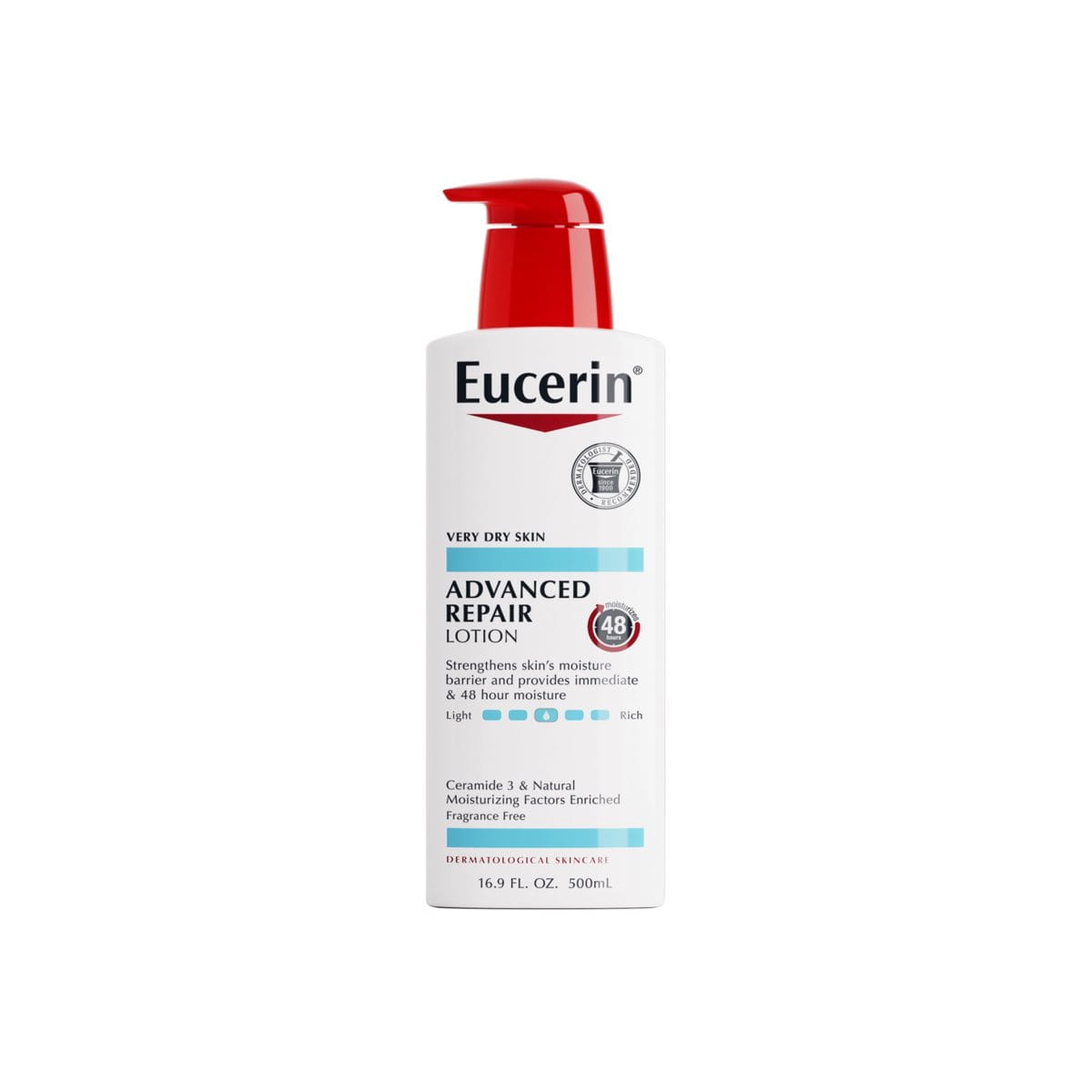
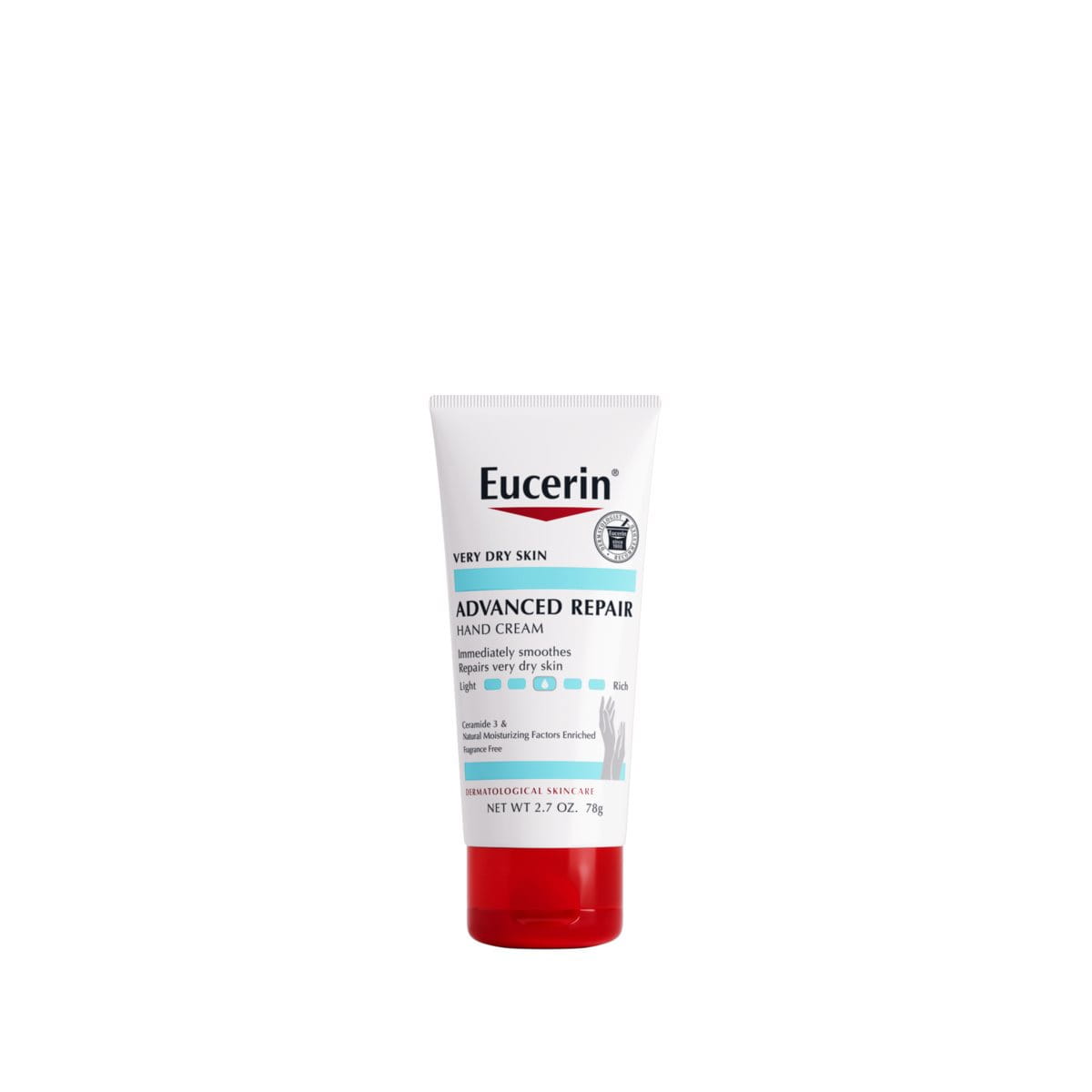
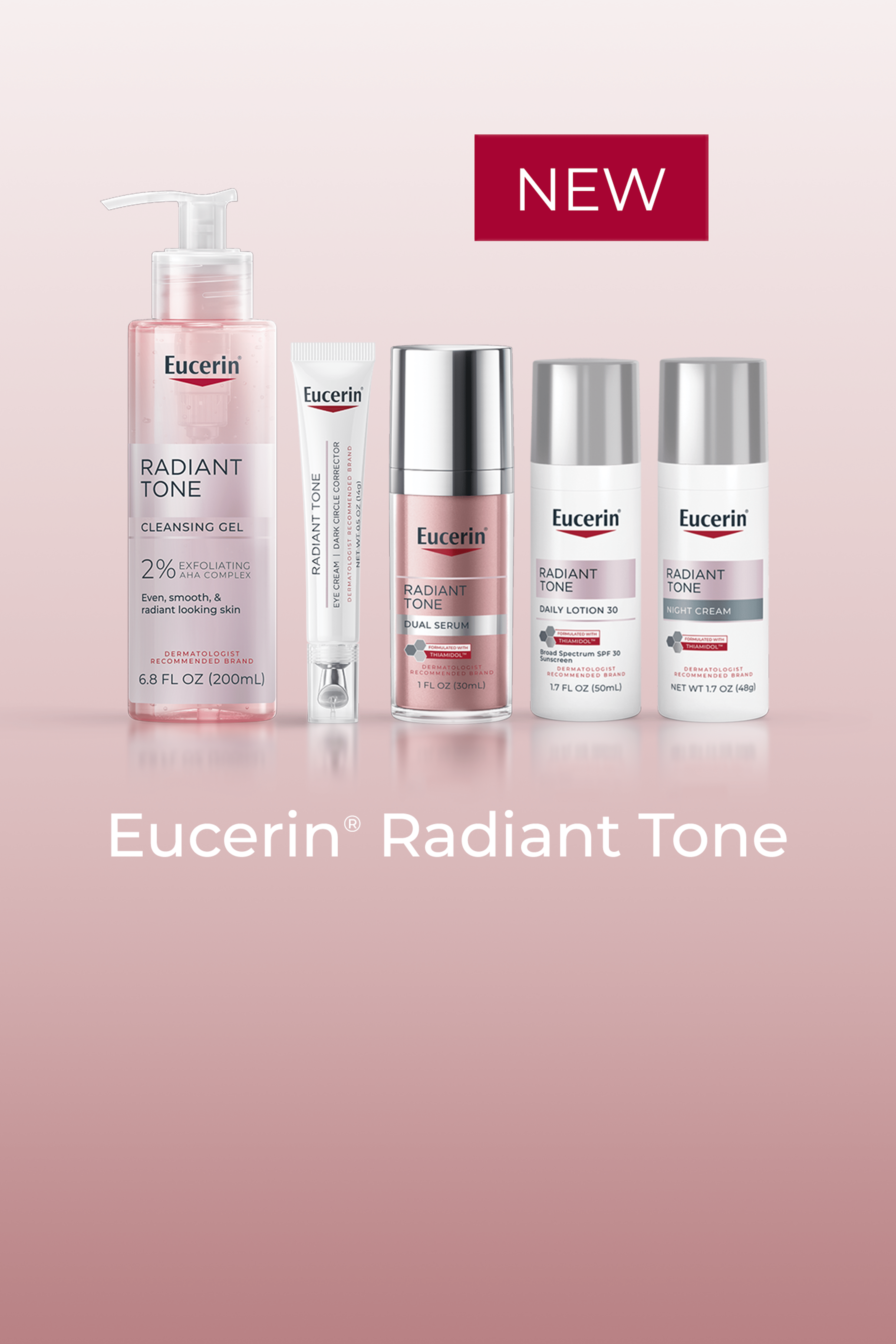

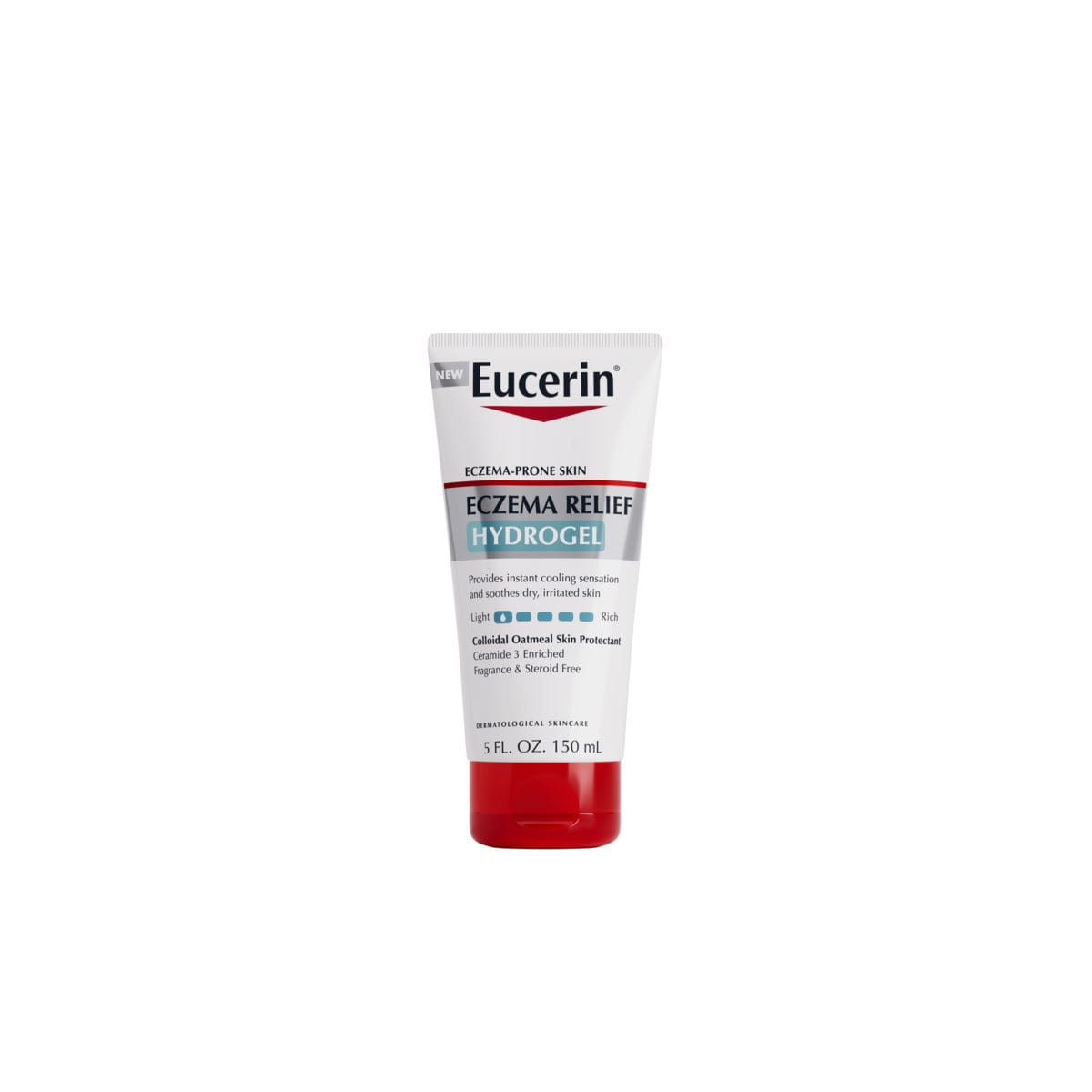
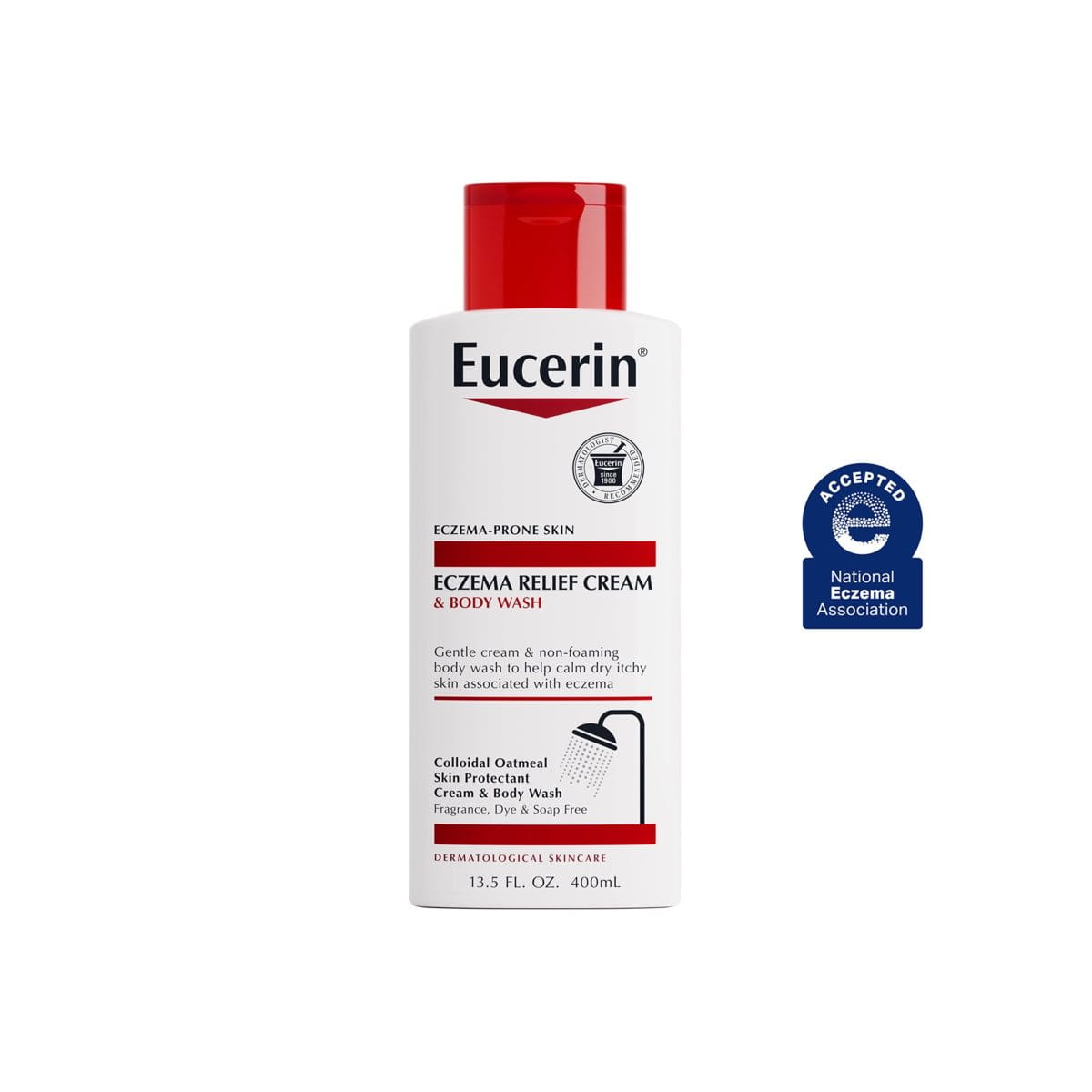
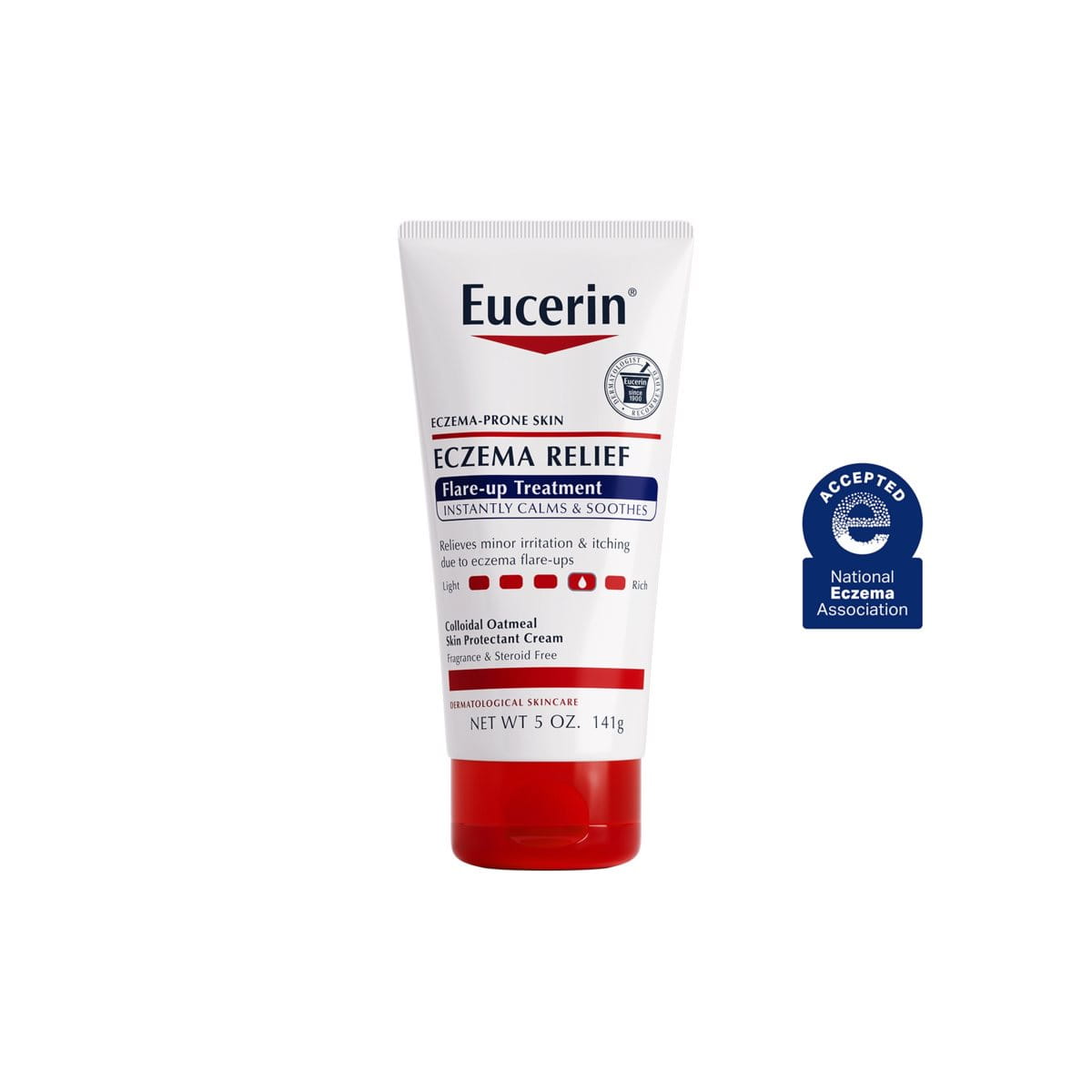
/moisture.svg)
/barrier.svg)
/lessirritat.svg)
/hypoallergenic.svg)
/colloidaloatmeal.svg)
/emollientsocclus.svg)
/ceramides.svg)
/phbalanced.svg)
/clinicaltest.svg)
/naturalacid.svg)
/enzymeactiv.svg)
